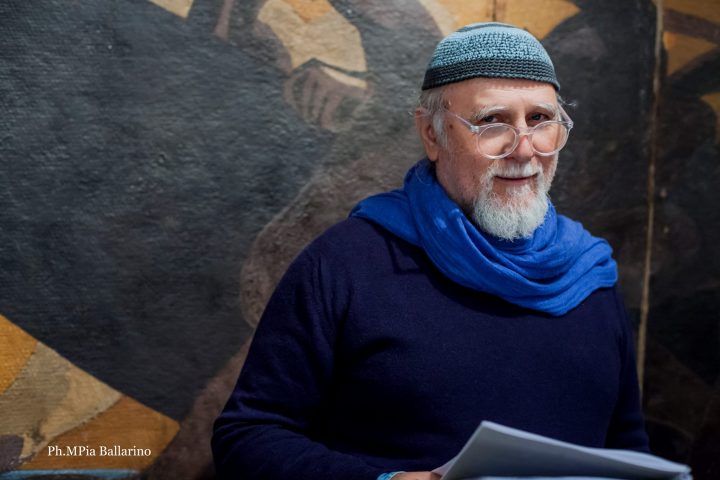Moni Ovadia is an Italian theatre actor, musician, singer and author. He has long been engaged in the search for a solution to the Israeli-Palestinian conflict which earned him the Premio Colombe for Peace in 2005; we asked him for his opinion on recent events.
Those who criticise Israel’s politics and, particularly, its violations of Palestinians’ human rights are often accused of anti-Semitism. How do you think those claims can be countered?
We should start by condemning those accusations for what they are: shameful, sinister acts of propaganda with the aim of keeping people quiet, cowardly actions seeking to prevent any form of discussion about the injustices suffered by the Palestinian people; a form of paranoia, a psychopathological short-circuiting. It is as if the people who make these claims lived in Berlin in 1935 and not in a country armed to the teeth, in possession of nuclear weapons and allied not only with the United States but also Egypt, Jordan and Saudi Arabia. It is the only country to do as it pleases, ignoring UN resolutions while the international community stands by.
I have been on the receiving end myself. As anti-Semitism is a crime in Italy, I have challenged my accusers to take me to court, so we can really have an open debate. I have also suggested they should see a psychiatrist for a long course of therapy.
How do you view the law that was approved a month ago by the Israeli Parliament declaring Israel as the “nation state of the Jewish people?”
I consider it to be a law that makes what was previously a system of de facto apartheid and racism official policy and is an expression of a colonial logic and mentality. It is madness when 20% of the population are Palestinian Arabs, making Israel a bi-national state anyway.
I am not suggesting that this is the mentality of all Israelis. There are those who are gripped by fear and by the myth of being surrounded, those who prefer to hide from reality and those who criticise official policy and pay the consequences for their bravery. Unfortunately, the latter are in the minority. However, history teaches us that often it is the minorities who redeem and save us. The majority may have the right to govern, but it does not follow that they are right.
Organisations such as Combatants for Peace unite Israelis and Palestinians who have embraced peace after fighting against each other in military action. The Prayer of the Mothers brought thousands of Jewish, Muslim and Christian women together to demand a non-violent solution to the conflict, acceptable to both sides. What do you think of these initiatives?
They are courageous and admirable initiatives carried out by people who the government boycotts and accuses of being against Israel’s interests. I’d also like to mention the young conscientious objectors who would rather go to prison than serve in the occupied territories and human rights associations such as B’Tselem. Two years ago, during a special meeting of the United Nations Security Council, B’Tselem’s director Hagai El-Ad called for “immediate action” against Israel’s settlements and the “invisible, bureaucratic daily violence” that Palestinians suffer “from the cradle to the grave.”
In your opinion, what contribution can we in Europe, and in particular in Italy, make towards finding a peaceful solution to the conflict between Israel and Palestine?
The first thing is the cultural point I was making earlier. We need to keep reiterating that denouncing the injustices and oppressions that the Palestinians suffer has got nothing to do with anti-Semitism or the Holocaust.
Secondly, pressure governments to take a stand and demand that the UN resolutions that Israel has always violated are respected.
Thirdly, support the BDS movement, a global campaign using boycotts, divestments and sanctions against Israel and which is asking Europe to seize goods – on the basis that they are illegal – produced in the occupied territories and settlements of the colonies. The message is simple, but very powerful: “This is not your land, these are therefore contraband and illegal goods, and we do not want them.”
Translation from Italian by Malcolm Gilmour










